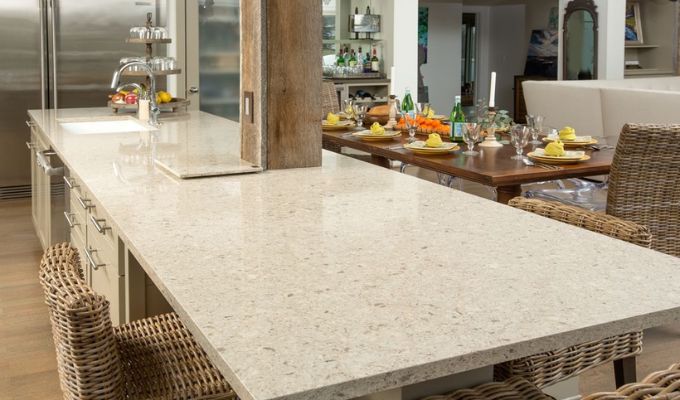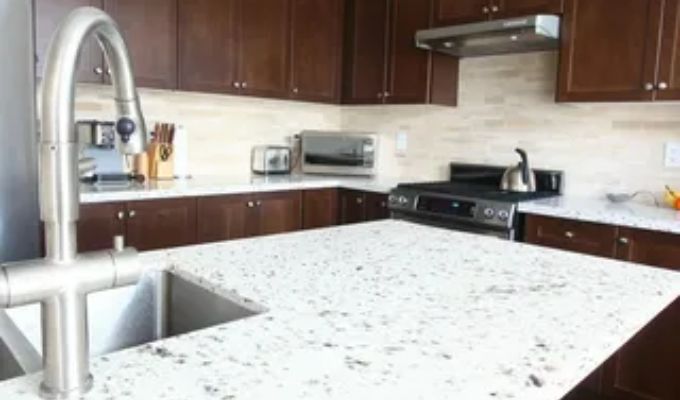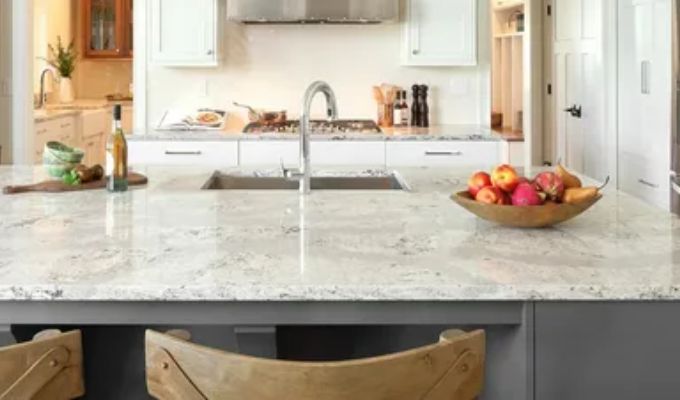Understanding the Cost of Quartz Countertops with Installation
Quartz countertops have become increasingly popular in modern kitchens and bathrooms for their aesthetic appeal, durability, and low maintenance. Whether you’re renovating a home or designing a new space, quartz offers a sleek, contemporary look combined with long-term functionality. However, one of the most common questions homeowners and builders ask is: what is the actual quartz countertops cost including installation?
To make an informed decision, it’s important to understand what influences the price of quartz countertops, what you’re paying for, and how you can balance quality and budget effectively. Let’s dive into the key factors that contribute to the total quartz countertops cost, from material selection to professional installation.

1. Material Quality and Brand Influence the Base Price
The cost of quartz countertops starts with the type and brand of quartz you choose. Unlike natural stone, quartz is engineered from a mix of natural quartz crystals and resin, which allows for uniform colors and patterns. Different brands offer varying price points depending on quality, design, and features.
- Low-end quartz may start around AED 250–300 per square meter.
- Mid-range quartz typically costs AED 350–500 per square meter.
- High-end quartz from premium international brands can go beyond AED 600–800 per square meter.
Brands such as Caesarstone, Silestone, and Cambria are known for their premium finishes and higher price tags. Locally available or less-known brands may offer competitive pricing with similar aesthetics.
2. Color, Pattern, and Finish Affect Pricing
Quartz is available in a vast range of colors, textures, and finishes. While solid colors and basic patterns are typically more affordable, designer quartz with marble-like veining, sparkles, or textured finishes can increase the price significantly.
Polished surfaces are usually standard, but matte or honed finishes might cost slightly more. Unique or custom-designed slabs also command higher prices due to limited availability and production processes.
3. Thickness and Edge Profiles Matter
Quartz slabs come in different thicknesses, usually 2 cm or 3 cm. The thicker the slab, the higher the quartz countertops cost, not just in terms of material but also installation, as thicker slabs are heavier and require stronger support.
Edge profiles like beveled, ogee, or bullnose add character but also increase the fabrication cost. Simple square edges are more budget-friendly, while intricate designs raise the final bill.
4. Size and Layout of the Countertop Area
The total surface area you need to cover is a major cost factor. A large kitchen island or expansive L-shaped countertop will naturally cost more than a small bathroom vanity.
Additionally, the layout impacts how the slabs are cut and joined. Complex layouts with multiple cutouts for sinks, cooktops, or unusual angles may require more labor and precision, increasing installation charges.
5. Fabrication and Installation Costs
Installation costs are typically charged separately and can account for 20–40% of the total quartz countertops cost. These costs include:
- Measuring and templating
- Custom cutting of slabs
- Edge shaping and finishing
- Transportation and on-site delivery
- Fitting, leveling, and sealing
Professional installation ensures a flawless finish, proper support, and long-term performance. DIY installation is not recommended for quartz due to the heavy weight and technical expertise required.
6. Additional Features That Impact Cost
There are other elements that may influence the final cost:
- Backsplash installation: Matching quartz backsplashes add extra cost per linear meter.
- Integrated sinks or waterfall edges: These luxury features are stylish but raise both material and labor costs.
- Seam visibility: Seamless finishes require expert craftsmanship, which may cost more.
While these features elevate the design, they should be considered carefully based on your overall budget.
7. Maintenance and Long-Term Value
Quartz countertops are non-porous, stain-resistant, and don’t require sealing like natural stone. While this makes them low maintenance, it also adds to their value and appeal. The initial investment in quartz might be higher than laminate or tile alternatives, but the long-term durability often outweighs the upfront cost.
In terms of ROI (return on investment), quartz countertops often increase property value, especially in high-end kitchens and bathrooms.
8. Tips for Managing Quartz Countertop Costs
To make the most of your investment, here are a few tips:
- Compare multiple suppliers and fabricators to get competitive quotes.
- Choose standard thickness and simple edge profiles to save on fabrication.
- Opt for locally available quartz brands that offer similar performance to international ones.
- Buy in bulk if you’re remodeling multiple spaces to benefit from discounts.
- Use remnants for smaller areas like vanities or shelves to reduce wastage and cost.
Conclusion: Choose Al Rafahia Marbles & Granite LLC for Quality Quartz at the Right Price
If you’re looking for trusted professionals to guide you through your quartz countertops cost and installation process, Al Rafahia Marbles & Granite LLC stands out as one of the leading names in the UAE. With a wide selection of premium quartz options, expert fabricators, and a reputation for delivering exceptional results, Al Rafahia ensures that every dirham you spend goes into a countertop that’s both beautiful and long-lasting. Their transparent pricing, skilled team, and commitment to customer satisfaction make them the preferred choice for discerning homeowners and designers across the UAE.




